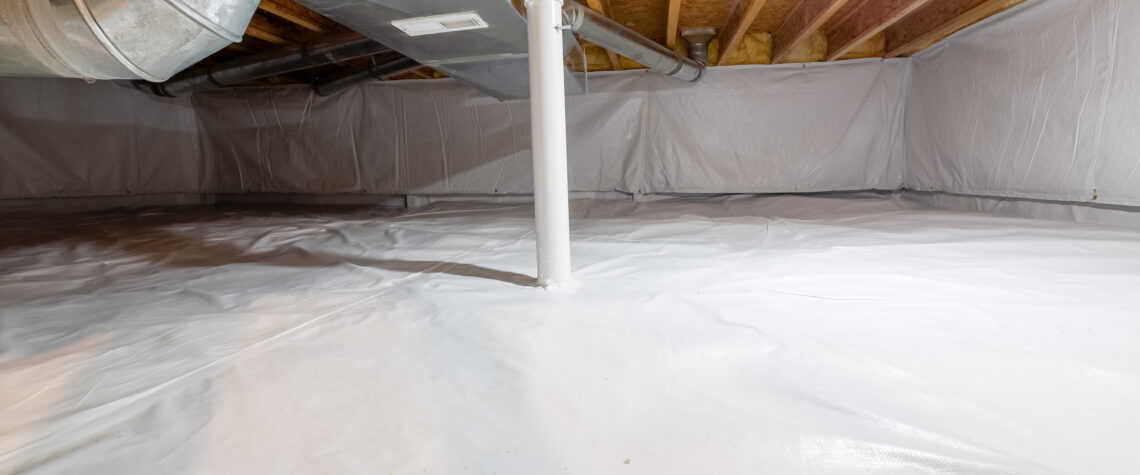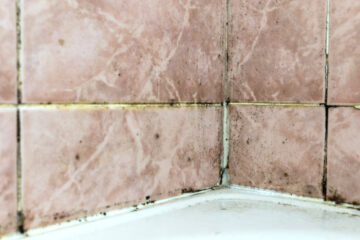If you’ve ever noticed a musty odor emanating from your crawl space, you’re not alone. This unpleasant smell is often indicative of underlying issues that need attention. Let’s explore some common causes of musty odors in crawl spaces and why addressing them promptly is crucial for maintaining a healthy home environment.
1. Moisture Accumulation:
One of the primary culprits behind musty odors in crawl spaces is moisture buildup. Crawl spaces are prone to high humidity levels due to poor ventilation, inadequate drainage, or water leaks. When moisture accumulates, it creates a perfect environment for mold and mildew growth. These fungi release volatile organic compounds (VOCs) that contribute to the characteristic musty smell.
2. Poor Ventilation:
Insufficient airflow in crawl spaces exacerbates moisture problems. Without proper ventilation, stagnant air traps humidity and prevents moisture from evaporating. This stagnant air becomes a breeding ground for mold and mildew, intensifying the musty odor over time.
3. Water Intrusion:
Leaks from plumbing, rainwater seepage, or groundwater infiltration can introduce excess moisture into the crawl space. Even minor leaks over time can lead to significant dampness and mold growth, which emit odors that permeate into the living spaces above.
4. Inadequate Insulation:
Improper insulation in crawl spaces can contribute to temperature differentials between the crawl space and the rest of the house. When warm, humid air from outside enters a cooler crawl space, condensation can form on surfaces, promoting mold growth and musty odors.
5. Organic Material Decomposition:
Organic materials such as wood, cardboard, or even dirt floors in crawl spaces can decompose over time. This decomposition process produces gases like methane and hydrogen sulfide, which contribute to the unpleasant smell.
6. Pest Infestations:
Pests like rodents, insects, or even birds can find their way into crawl spaces and leave behind droppings, nesting materials, and carcasses. These organic materials decompose and emit foul odors that can permeate into the home.
7. Poor Maintenance:
Neglecting regular maintenance and inspections of crawl spaces allows problems to worsen unnoticed. Issues like leaks, inadequate ventilation, or pest infestations can escalate, leading to more significant odor problems and potentially costly repairs.
Addressing Musty Odors in Crawl Spaces:
- To eliminate musty odors and prevent them from recurring, consider the following steps:
- Inspect for Water Damage: Look for signs of leaks or water intrusion and repair them promptly.
- Improve Ventilation: Ensure adequate airflow by installing vents, fans, or a dehumidifier to reduce humidity levels.
- Remove Organic Debris: Clean out debris, old insulation, and any organic material that could promote mold growth.
- Encapsulate the Crawl Space: Consider encapsulation to create a moisture barrier with a vapor barrier and sealed foundation vents.
- Control Humidity: Use a hygrometer to monitor humidity levels and take steps to keep them below 60% to inhibit mold growth.
- Professional Inspection: If problems persist or are severe, consult a professional to assess the crawl space and recommend appropriate solutions.
By addressing the causes of musty odors in crawl spaces promptly and effectively, you can improve indoor air quality, prevent structural damage, and create a healthier living environment for you and your family. Don’t ignore musty odors—they’re not just unpleasant; they’re a sign of potential issues that need attention.
Hannah Moulton, Content Marketing Specialist – Frontier Foundation and Crawl Space Repair – www.trustfrontier.com














